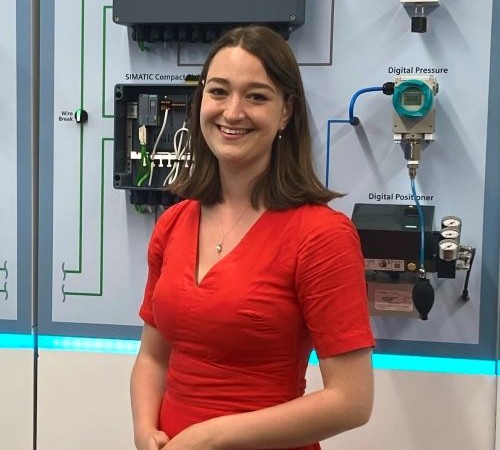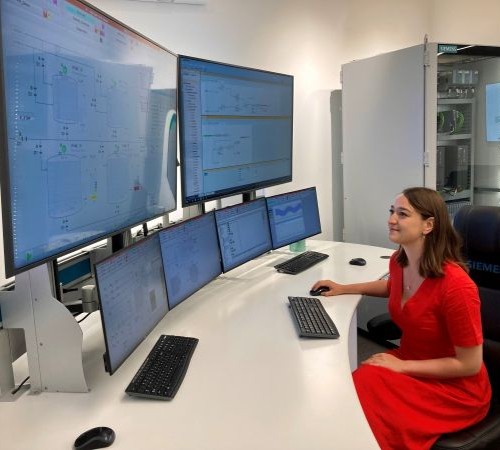A passion for aerospace
Isabelle’s interest in aerospace started early. “My mum worked in the aerospace industry, and I would go with her to the Fairford Airshow every year,” she says. “I’d look up and think that those big metal tubes flying around in the sky were the coolest things in the world.”
While studying electrical and electronic engineering at the University of Nottingham, she secured a sponsorship programme with Siemens and undertook three summer internships with the company. She won the Nottingham Society of Engineers Engineering Graduate Award and joined the Siemens graduate scheme, where she won the company’s Graduate of the Year Award. She was promoted to her current position as an aerospace account manager while still on the graduate scheme and now works with leading, global aerospace companies to modernise their manufacturing practices, drive cost efficiencies, and foster rapid growth.
Having the ELS on your CV makes you a 'pre-approved' person.

Perseverance and rediscovery
Isabelle applied for the ELS in her second year at university but was unsuccessful, so she tried again the following year. “The first time I applied I overanalysed it to death, but the second time I wrote the application in one day and just did what felt right.”
She spent the funding on three international trips, including the 2020 Dubai World Expo, which she attended with three people from her ELS cohort.
She then spent a month in the US, where she visited the Siemens office in Philadelphia. “Visiting the US office gave me a better understanding of how a global company works,” she says. “The extensive travelling also made me feel ready for my current job and helped with my overall confidence."
While in the US, she attended the Society of Women Engineers Conference in San Diego. “It was inspiring being in a room full of women engineers,” she says. “The generic advice you receive as an engineer doesn’t always apply when you’re a woman as we have challenges that are unique to us. It was great to receive that impactful, tailored advice.”
Time in Guatamala
Isabelle’s final trip was to Guatemala, a place she explored with her ELS colleague, Floriane Fidegnon-Edoh. “I had reached a point where I had settled into my job but was struggling to value myself outside of accolades and awards,” she says. “I realised I had met all the arbitrary goals I had set myself at 16 and yet still felt stressed and unhappy.”
She says her trip to Guatemala was an untraditional way of using the funding, but that “it helped me to redefine my self-worth and rediscover joy.” She visited rural areas and learnt about specific engineering challenges in the country, and at the same time was able to enjoy activities like kayaking and hiking up a dormant volcano.

Reframing rejection
Isabelle remains actively engaged with the ELS and ran a session on failure at the programme’s annual conference. “I almost didn’t reapply for the ELS after my first application was unsuccessful, but I was being harsh on myself,” she says. “I have learnt that rejection is not final – there is just a gap that you need to close before trying again. If you’re not getting rejected, you’re not reaching high enough.”
In her role at Siemens, Isabelle is committed to sustainability and leveraging cutting-edge technology to advance UK manufacturing. “I’m really excited about the future of the aerospace industry – it is about to hit a revolution,” she says. “It is a slow-moving industry, but it is ready for change. I’m passionate about solving industry challenges, including the adoption of advanced technology, rate increases, and the skills shortage."
Advice
Isabelle advises potential applicants to be cautious of self-rejection. “There isn’t one type of person the ELS is looking for, so you don’t have to fit in a certain box,” she says. “Let the panel decide if you’re ready and if you don’t succeed the first time, absolutely try again.”
Interested in participating in the Engineering Leaders Scholarship?
Visit the programme pages to find out more about how it could benefit you and your career.
